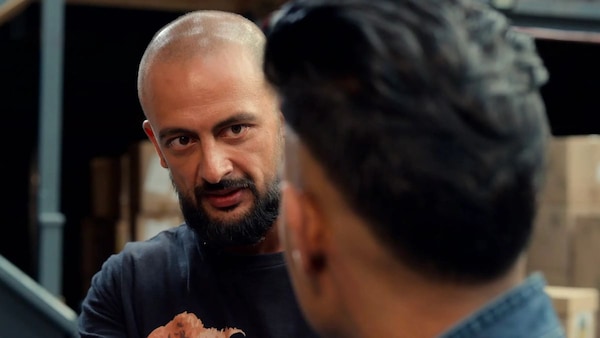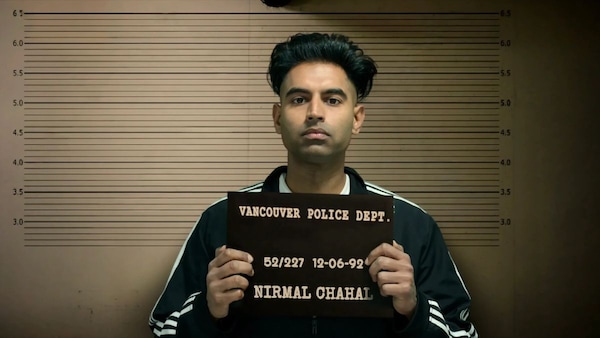Kanneda Is A Soapy Take On The Punjab Immigration
The show's multiple plotlines and half-baked characters create an incomplete portrait of displacement reducing grief, trauma and the hurt of leaving home to a singular narrative of racism.

Promo poster for Kanneda.
Last Updated: 05.34 PM, Mar 21, 2025
CHANDAN ARORA'S Kanneda on JioHotstar is one of those serviceable shows which is content being the second screen. The narrative is aware of the frugal attention it evokes and factors that in by unfolding in broad strokes—gunshots, frequent killings, side swapping—without resting with one for a while. Kanneda seeks to tell the story of a person and a country, each entwined with the tragedy of displacement, and makes as little effort as possible.
Honestly, I will take it. The series is harmless, sticks to its lane and concludes each of the eight episodes within a sleek 30-minute turnaround. This already makes Kanneda more tolerable than most of the series crowding the streaming platforms lately. But Arora’s show is also afflicted with tiring filmmaking, familiar staging and questionable performances even though Arunoday Singh acts on behalf of everyone.

Kanneda, a phonetic rendering of Canada in Punjabi, is about the immigration of Indians from Punjab to Canada after the 1984 anti-Sikh riots and the racism that followed. If nothing, it is a timely premise given how burgeoning the issue has been in recent times. The series, however, probes very little into the reason and chooses to focus instead on the aftermath. The question of why people left their motherland is glossed over to prioritise what happened to those who did.
Nirmal Chahal (Parmish Verma) has dreams of making it big in Canada. His parents left Punjab when he was young as flashes of riots leak into his dreams. Back in Vancouver, he seeks to get into the national rugby team and land a good job. He is also a songwriter which adds to his desire to become famous and affluent. But they all come crashing down when he is framed on drug charges, making him bitter towards the foreign country. His treatment as an outsider enrages him enough to join a gang headlined by Singh. He becomes a gangster and an Indian narcotics officer, Sanjay (Mohammed Zeeshan Ayyub) comes after him.

It is amply clear that the screenplay is bursting with multiple plotlines, subplots and characters. The filmmaker tries to coalesce them but nothing and no one is allowed to breathe. Thus, Nirmal’s aspiration to become a singer is tied with his vengeful dream to be a gangster which is then melded with his relationship, and above all, there is his difficult relationship with his parents. He is also portrayed as a moralistic outlaw who draws the line at human trafficking.
What surfaces from these are half-baked characters but also an incomplete portrait of the perils of displacement where grief, trauma and the hurt of leaving home are all filed under racism. The sweeping commentary does a disservice to the very real issues Kanneda upholds, reducing them almost to lite anguish that strangely is not intergenerational.

The soapy texture of the series aligns with the aesthetics of a host of other works on streaming that surely and swiftly dim the line between television and streaming. Kanneda does not fare any better (although it gives Ranvir Shorey the space to ham to his heart’s content) but it can be held more accountable given the timeline it chooses to depict. Unlike the rest, this is not a generic police procedural. But much like Ram Madhvani’s recent historical series The Waking of a Nation, Kanneda too is aware that you are watching it with a phone in hand. And instead of fighting for your attention, it comfortably settles for diminished consideration and, subliminally, also reduced scrutiny.
Kanneda is currently streaming on JioHotstar.

 Premium
Premium